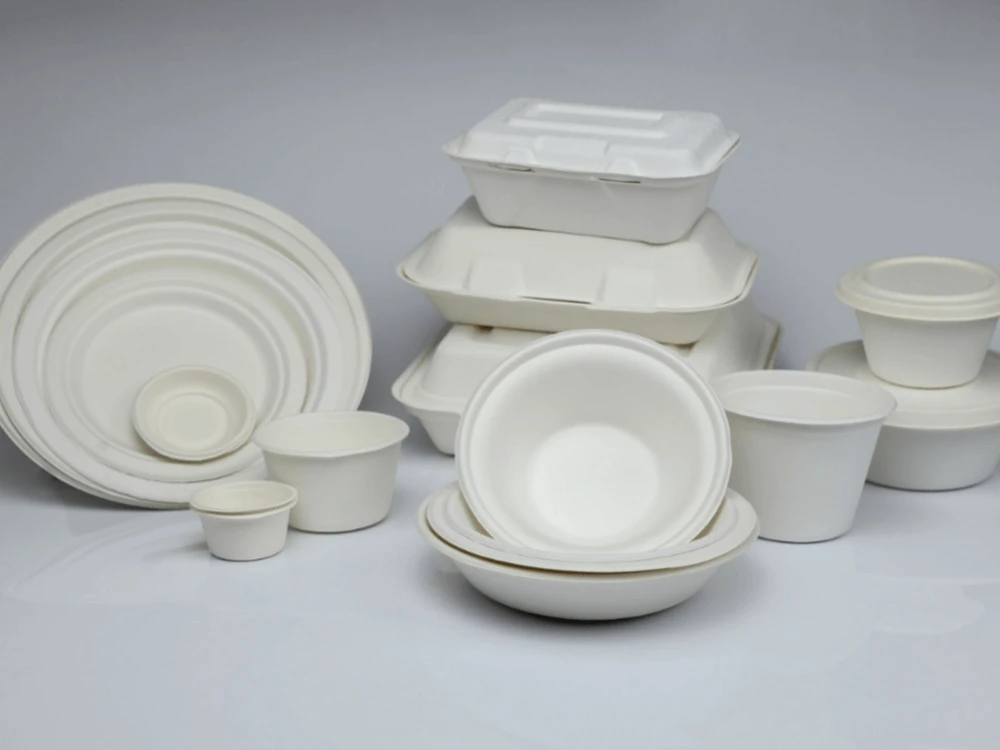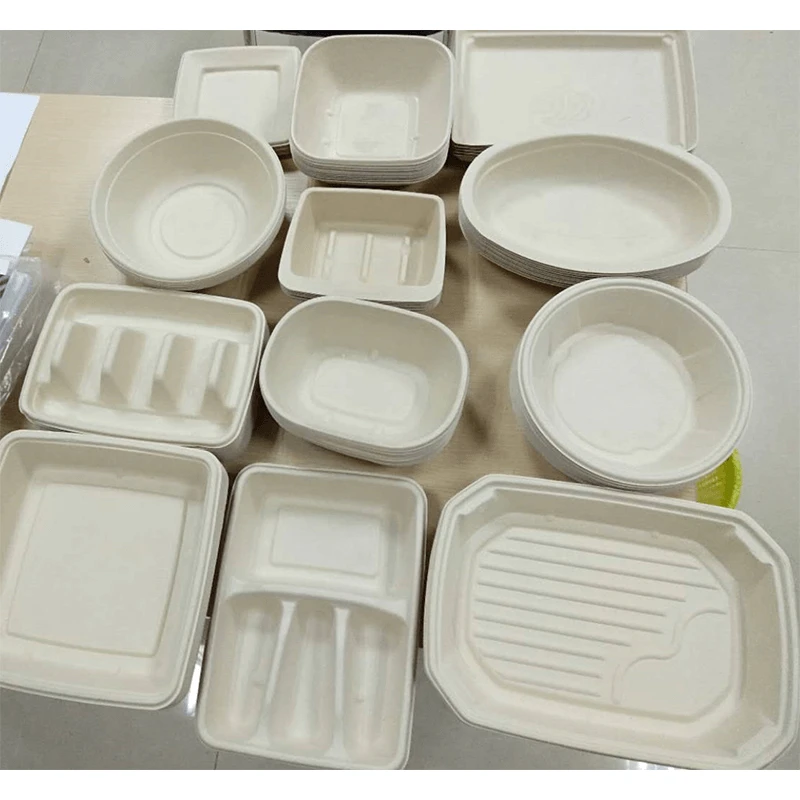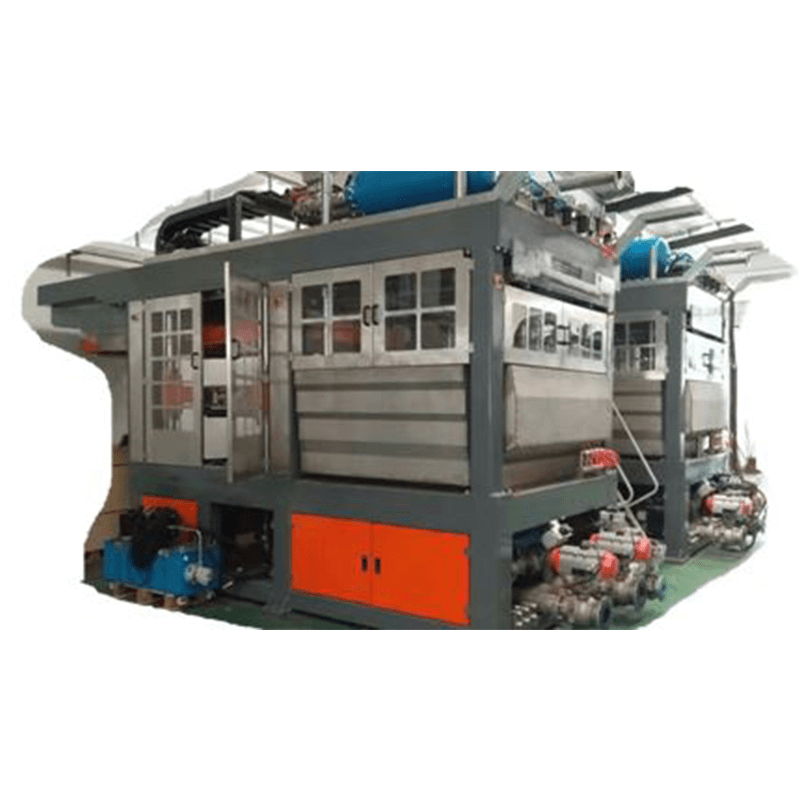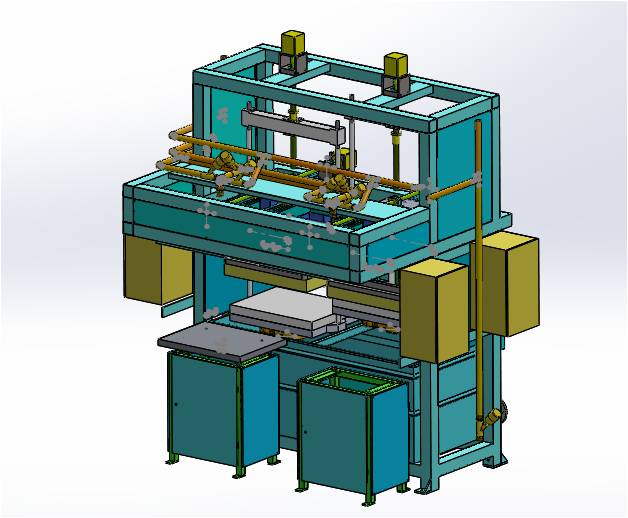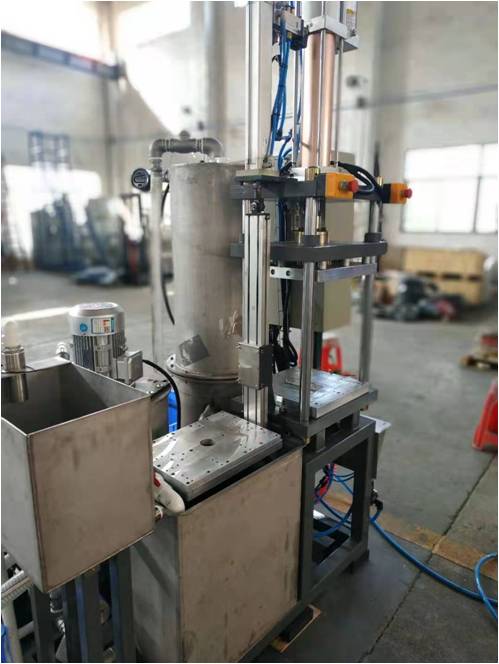The market for pulp tableware has expanded significantly in response to the growing demand for eco-friendly alternatives to plastic. Manufacturers have innovated various products made from pulp materials, offering a diverse range of options for consumers.
Pulp-based tableware items are crafted to be sturdy, moisture-resistant, and capable of handling various temperatures, making them suitable for a wide range of food-serving and packaging purposes. They are designed to be both functional and environmentally conscious, catering to the increasing consumer demand for sustainable options in everyday products. Some of the commonly available pulp tableware items in the market include:
Plates: Pulp-based plates come in various sizes and shapes, catering to different serving needs. The pulp plates are sturdy enough to hold a variety of foods, including hot and cold dishes, making them suitable for both casual and formal occasions.
Bowls: Pulp bowls are versatile and convenient for serving soups, salads, cereals, and snacks. They are designed to be leak-resistant and sturdy, making them a practical choice for various culinary purposes.
Cups and Lids: Pulp cups, often used for beverages like coffee, tea, or cold drinks, are available with accompanying lids for convenience. These cups are durable and suitable for both hot and cold beverages.
Trays and Platters: Pulp trays and platters are ideal for catering events, picnics, or parties. They come in different sizes and shapes, providing a sustainable alternative for serving appetizers, finger foods, or larger dishes.
Cutlery: Pulp-based cutlery, including forks, spoons, and knives, offers a practical solution for single-use utensils. These utensils are sturdy enough to handle various types of food and are compostable after use.
Takeout Containers: Pulp-based takeout containers are gaining popularity in the food industry. These containers are suitable for packaging various food items for takeout or delivery and are often microwave-safe.
Food Packaging: Beyond tableware, pulp-based materials are used for eco-friendly food packaging, such as clamshells, boxes, and trays used in supermarkets or delis for packaging fresh produce, baked goods, or prepared foods.
Food Service Supplies: Pulp-based napkins, trays, wraps, and liners are also available in the market, offering environmentally friendly alternatives for food service establishments.
Advantages of Using Pulp Tableware
Using pulp tableware offers several advantages, making it an increasingly popular choice for consumers seeking eco-friendly alternatives to plastic.
Environmentally Friendly: Pulp tableware is made from natural, renewable resources such as bamboo, sugarcane bagasse, or recycled paper. These materials are biodegradable and compostable, reducing the environmental impact when disposed of properly. Unlike plastic, pulp tableware decomposes efficiently, contributing to waste reduction and healthier ecosystems.
Reduced Plastic Dependency: Opting for pulp tableware decreases reliance on plastic-based products. With the global push to reduce plastic pollution, choosing biodegradable pulp-based alternatives helps mitigate the environmental harm caused by single-use plastics, contributing to a cleaner planet.
Sustainable Sourcing: Pulp tableware materials often come from sustainable sources that regenerate quickly, such as bamboo or sugarcane. These resources require minimal processing and have a smaller ecological footprint compared to the extraction and refinement processes involved in plastic production.
Versatility and Functionality: Pulp tableware items are designed to be sturdy, durable, and capable of handling various types of foods, including hot and cold dishes. They exhibit similar functional qualities to plastic tableware without compromising on usability, making them suitable for different occasions and culinary purposes.
Safe and Non-Toxic: Pulp tableware is generally considered safe for use with food. It doesn't leach harmful chemicals or toxins into food or beverages, providing a safer option compared to some plastics that may contain potentially harmful additives.
Customizable and Aesthetically Pleasing: Manufacturers can mold pulp into various shapes and designs, allowing for customization according to consumer preferences. Pulp tableware items can be aesthetically pleasing, with different textures and finishes available, catering to diverse tastes and styles.
Economic Viability: While initial costs may be slightly higher than plastic counterparts, the long-term benefits outweigh the expenses. Reduced environmental impact and the potential for composting or recycling contribute to the overall economic viability of pulp tableware.
Compostable and Recyclable: Pulp tableware can often be composted in industrial facilities or home composting setups. Additionally, some varieties are recyclable, contributing to the circular economy by being reused or repurposed after their initial use.
The above-mentioned advantages make pulp tableware a compelling choice for those seeking eco-conscious alternatives in their daily lives. Contact Meishi today to explore the charm of paper plastic tableware and customize exclusive products for your production line.







